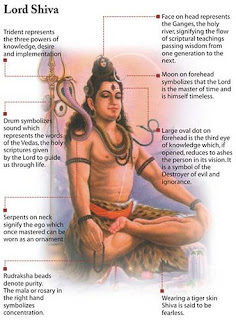Video : Shrimad Bhagwat Katha Gayn Yagya (9 Mar-15 Mar), Aajad Nagar, Thane
Dev Bhoomi Uttrakand Ke Devi Devta Live Dance
Devotees enjoying the Karishnmay Bhakti
The Bhāgavata Purāna (भागवतपुराण, also known as Śrīmad Bhāgavata Maha Purana or Śrīmad Bhāgavatam or Bhāgavata) is one of the "Maha" Puranic texts of Vedic Sanskrit literature, with its primary focus on bhakti (religious devotion) to Vedic Supreme God Narayana or Vishnu, primarily focusing on Krishna or Svayam Bhagavan. The Bhagavata Purana includes many stories well known in Vedic tradition, including the various avatars of God Vishnu and the life & pastimes of his complete incarnation, Krishna. It was the first Purana to be translated into a European language, with three French translations also between 1840 and 1857.
Gods and Goddess celebrate Lord Krishna's birth
The Bhāgavata is widely recognized as the best known and most influential of the Puranas, and is sometimes referred to as the "Fifth Veda". It is unique in Indian religious literature for its emphasis on the practice of bhakti, compared to the more theoretical bhakti of the Bhagavad Gita; for its redefining of dharma; and for the extent of its description of God in a human-like form. It is also the source for many of the popular stories of Krishna's childhood told for centuries in the Indian subcontinent. Charlotte Vaudeville refers to the Bhāgavata as "the real Bible of Krishnaism" while the Bhāgavata declares itself as the essence of Vedanta:
Shrikrishna being taken to Gokul from Mathura by Vasudevji
Bhagavata Purana is a Sattva Purana and is considered as purest and greatest of all puranas since it invokes the devotion towards the God Narayana or Vishnu and his various incarnations, primarily focusing on Krishna since he was complete incarnation of Lord Vishnu. Bhagavata Purana truly reveals the means for becoming free from all material work, together with the processes of pure transcendental knowledge, renunciation and devotion to God Vishnu and anyone who seriously tries to understand, hears and chants the verses of Bhagavata Purana with devotion to God Vishnu or Narayana or Krishna, becomes completely liberated from kama, material bondage and attains moksha or liberation from cycle of births and deaths in the material world.
Devotees celebrate Lord Krishna Birth
The method of destroying the great enemy (known as kama) desire and lust is learned through the knowledge of Vedic scriptures received by the words of the spiritual master. Controlling the five senses is the key step allowing one to benefit from the Vedic knowledge. Without restraint of the senses one has no possibility of conquering kama. Lord Krishan in Geeta Says "The senses are superior to the physical body, the mind is superior to senses, the intellect is superior to the mind and the atma or soul is superior to the intellect. Each one of these has different kinds of hunger, needs and desires. Physical body (Shareer) needs food, senses (Indri) seek pleasure and gratification, mind (Mann) seeks love and respect, Intellect (Buddhi) needs knowledge to satisfy mind and curiosity and attain wisdom and Atma (Soul) needs God to attain moksha and liberation from sufferings, pain, sorrows, unfulfilled desires, debt and the cycle of birth and death
.
Sudhamaji at dwarika to meet his childhood friend Lord Krishna
Moksa or liberation from the cycle of birth and death is not possible from studying various verses in diverse Vedic scriptures in different contexts. In the Gunopasamhara section of Brahma Sutras it is stated that the Supreme Lord should be meditated upon after recollecting in the mind the entire range of attributes and qualities possessed by the Supreme Lord. In the Vedas which are apaurusaheya which means not of human origins and also in the Mahabharata and Garuda Purana it is stated that: Whatever attributes have been revealed in the Vedic scriptures regarding the Supreme Lord Krishna and His authorised incarnations and whoever is able to actually perceive Him realising these unique attributes in their hearts, such a person alone does bhakti or devotion becomes established.
(Sudhaamaji with Lordkrishna)
Bhagavata Purana declares God Narayana or Vishnu or Hari as Para Brahman Supreme Lord who creates unlimited universes and enters each one of them as Lord of Universe.God Narayana engages in creation of 14 worlds within the universe as Brahma when he deliberately accepts rajas guna. God Narayana himself sustains, maintains and preserves the universe as Vishnu when he accepts sattva guna and annihilates the universe at the end of maha-kalpa as Shiva or Rudra when he accepts tamas guna. According to this reference, the holy Trimurti is non-different from God Narayana or Vishnu or Shiva.
(Aryan Rana felicitates Shri Baldev Singh Rana, the renowned Garhwali Cinema Actor on the final day)
Therefore, Bhagavata Purana says "The Supreme Lord Krishna" who is a complete incarnation (Sampurna Awatar) should be understood to be superior to everything as He existed before the creation of everything. He is Brahma One who fully understands this and acts in accordance with this understanding is eligible for moksa. The desire for sense gratification is overcome by atma tattva or soul realisation and also without perceiving the Supreme Being how will the living being expect to overcome kama?. Thus it is clear that knowledge pertaining to the Supreme Lord is what is most important. The worldly knowledge (Science, Geography, Economics, Politics etc) can only satisfy our temporary needs. Atma is permanent, pure and non-perishable as it is part of Parmatma, therefore, we need to look beyond.
The Sri Bhāgavata is the very essence of all the Vedanta literature. One who has enjoyed the nectar of its rasa never has any desire for anything else.
Jai Shri Krishna. Jai Shri Ram. Om Namha Shivya!
God Bless You!









Comments
Post a Comment